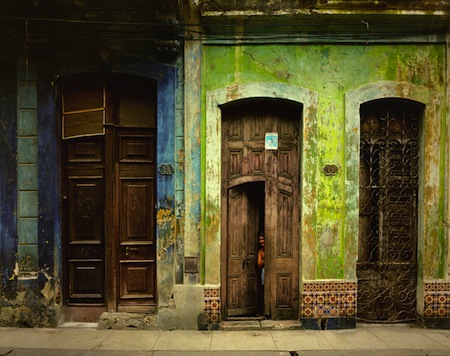The New York Times recently examined the U.S. embargo on Cuba, noting that the opening of the Cuban private market, through Cuban president Raúl Castro’s push for privatization of parts of the state-run economy and other reforms, is giving a new rationale to lifting the embargo:![]()
![]()
With Cuba cautiously introducing free-market changes that have legalized hundreds of thousands of small private businesses over the past two years, new economic bonds between Cuba and the United States have formed, creating new challenges, new possibilities — and a more complicated debate over the embargo.
The longstanding logic has been that broad sanctions are necessary to suffocate the totalitarian government of Fidel and Raúl Castro. Now, especially for many Cubans who had previously stayed on the sidelines in the battle over Cuba policy, a new argument against the embargo is gaining currency — that the tentative move toward capitalism by the Cuban government could be sped up with more assistance from Americans.
Which begs the question, a day after Cuba’s own sham parliamentary elections: why is the embargo still in place, 51 years after the Cuban missile crisis?
The easiest and obvious explanation is a public choice theory — Cuban Americans, especially those in Florida, remain adamant against lifting the embargo, and any politician’s move to open trade or travel restrictions on Cuba would risk the wrath of a key electoral bloc in not only a large U.S. state, but one with 29 electoral votes (i.e., more than 10% of the votes a presidential candidate needs to win an election).
Given the prominence of many Cuban-American representatives in Congress, including the likely new chairman of the U.S. Senate committee on foreign relations, U.S. senator Robert Menendez from New Jersey (if he can survive allegations of improper donations and dilly-dallying with underage prostitutes in the Dominican Republic), it’s easy enough to see how a small group of politicians and an active group of voters can block any change on the issue.
I find that a very compelling explanation for why the embargo remains in place, but is there a compelling public interest explanation for continuing the embargo?
Economic sanctions rarely ‘work,’ unless virtually the entire world participates — note how the French, the Russians and the Chinese and other interests undermined sanctions on Iraq throughout much of the 1990s. Likewise, despite a severe hangover from the end of the Cold War in the 1990s due to the abrupt termination of Soviet subsidies, Cuba has seen an increasing flow of Chinese investment over the past decade, not to mention a steady stream of European and Canadian tourists, delighted to find a haven from American tourists, who of course, aren’t legally able to visit Cuba.
The Cuban-American community often argues that the embargo is necessary to continue to punish and isolate the Castro regime, but the United States has no problem doing business with regimes that continue to feature authoritarian political control, including Vietnam and the People’s Republic of China.
But other than the Cuban-American lobby, I hear far fewer people trying to make the case for a public interest argument for retaining the embargo. While I’m not necessarily advocating it (and I don’t want to list the many reasons, political, economic, humanitarian and otherwise, in favor of lifting the 51-year embargo), the case must go something like this:
If you are close in proximity to the United States (90 miles off those shore of Florida, no less!), and you collude with the chief geopolitical enemy of the United States to aim nuclear missiles at the United States, the U.S. government will not only punish you, but it will punish you for so long after the incident, holding the grudge for such a long time and beyond all expectations, that no one in Latin America will do anything to endanger U.S. national security to the same degree without thinking long and hard about the isolating aspects of the U.S. response.
On this theory, the embargo is less important for U.S.-Cuban relations and more important as a deterrent to, say, Venezuela or Nicaragua or whichever Latin American regimes in and around the Caribbean that happen to feature a relatively anti-American government.
I find this persuasive, in particular, given that the relative distance of the United States from Europe and Asia has been one of its key strategic strengths, especially in geopolitical affairs over the past century and a half — note that the trauma involved with both the Japanese attack on Pearl Harbor in 1941 and the al-Qaeda terrorist attacks on New York City and Washington in 2001 resulted in part from the relative scarcity of foreign attacks on the U.S. mainland.
Any other rationales?
Photo credit to Andrew Moore — Habana Vieja, on Calle Bayona, 1998. Check out his latest book of photos from Cuba here.

One thought on “A public interest theory of the continued U.S. embargo on Cuba”